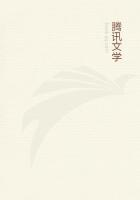Of the Manners of Polished and Commercial Nations Mankind, when in their rude state, have a great uniformity of manners; but when civilized, they are engaged in a variety of pursuits; they tread on a larger field, and separate to a greater distance. If they be guided, however, by similar dispositions, and by like suggestions of nature, they will probably, in the end, as well as in the beginning of their progress, continue to agree in many particulars; and while communities admit, in their members, that diversity of ranks and professions which we have already described, as the consequence or the foundation of commerce, they will resemble each other in many effects of this distribution, and of other circumstances in which they nearly concur.
Under every form of government, statesmen endeavour to remove the dangers by which they are threatened from abroad, and the disturbances which molest them at home. By this conduct, if successful, they in a few ages gain an ascendant for their country; establish a frontier at a distance from its capital;they find, in the mutual desires of tranquillity, which come to possess mankind, and in those public establishments which tend to keep the peace of society, a respite from foreign wars, and a relief from domestic disorders. They learn to decide every contest without tumult, and to secure, by the authority of law, every citizen in the possession of his personal rights.
In this condition, to which thriving nations aspire, and which they in some measure attain, mankind having laid the basis of safety, proceed to erect a superstructure suitable to their views. The consequence is various in different states; even in different orders of men of the same community; and the effect to every individual corresponds with his station. It enables the statesman and the soldier to settle the forms of their different procedure; it enables the practitioner in every profession to pursue his separate advantage; it affords the man of pleasure a time for refinement, and the speculative, leisure for literary conversation or study.
In this scene, matters that have little reference to the active pursuits of mankind, are made subjects of inquiry, and the exercise of sentiment and reason itself becomes a profession. The songs of the bard, the harangues of the statesman and the warrior, the tradition and the story of ancient times, are considered as the models, or the earliest production, of so many arts, which it becomes the object of different professions to copy or to improve. The works of fancy, like the subjects of natural history, are distinguished into classes and species; the rules of every particular kind are distinctly collected; and the library is stored, like the warehouse, with the finished manufacture of different arts, who, with the aids of the grammarian and the critic, aspire, each in his particular way, to instruct the head, or to move the heart.
Every nation is a motley assemblage of different characters, and contains, under any political form, some examples of that variety, which the humours, tempers, and apprehensions of men, so differently employed, are likely to furnish. Every profession has its point of honour, and its system of manners; the merchant his punctuality and fair dealing; the statesman his capacity and address; the man of society, his good-breeding and wit. Every station has a carriage, a dress, a ceremonial, by which it is distinguished, and by which it suppresses the national character under that of the rank, or of the individual.
This description may be applied equally to Athens and Rome, to London and Paris. The rude or the ****** observer would remark the variety he saw in the dwellings and in the occupations of different men, not in the aspect of different nations. He would find, in the streets of the same city, as great a diversity, as in the territory of a separate people. He could not pierce through the cloud that was gathered before him, nor see how the tradesman, mechanic, or scholar, of one country, should differ from those of another. But the native of every province can distinguish the foreigner; and when he himself travels, is struck with the aspect of a strange country, the moment he passes the bounds of his own, The air of the person, the tone of the voice, the idiom of language, and the strain of conversation, whether pathetic or languid, gay or severe, are no longer the same.
Many such differences may arise among polished nations, from the effects of climate, or from sources of fashion, that are still more unaccountable and obscure; but the principal distinctions on which we can rest, are derived from the part a people are obliged to act in their national capacity; from the objects placed in their view by the state; or from the constitution of government, which prescribing the terms of society to its subjects, has a great influence in forming their apprehensions and habits.
The Roman people, destined to acquire wealth by conquest, and by the spoil of provinces; the Carthaginians, intent on the returns of merchandise, and the produce of commercial settlements, must have filled the streets of their several capitals with men of a different disposition and aspect. The Roman laid hold of his sword when he wished to be great, and the state found her armies prepared in the dwellings of her people.
The Carthaginian retired to his counter on a similar project;and, when the state was alarmed, or had resolved on a war, lent of his profits to purchase an army abroad.















